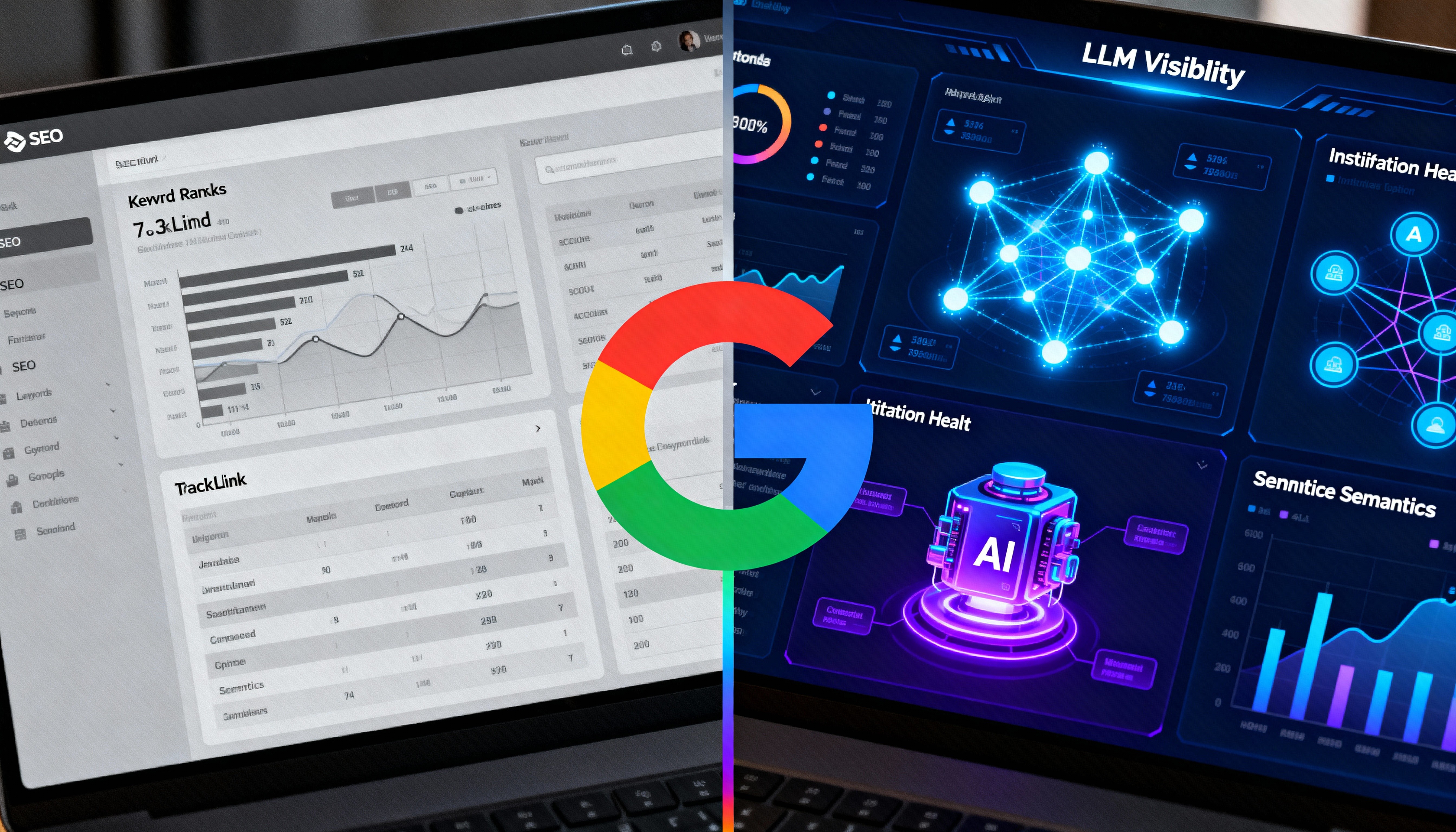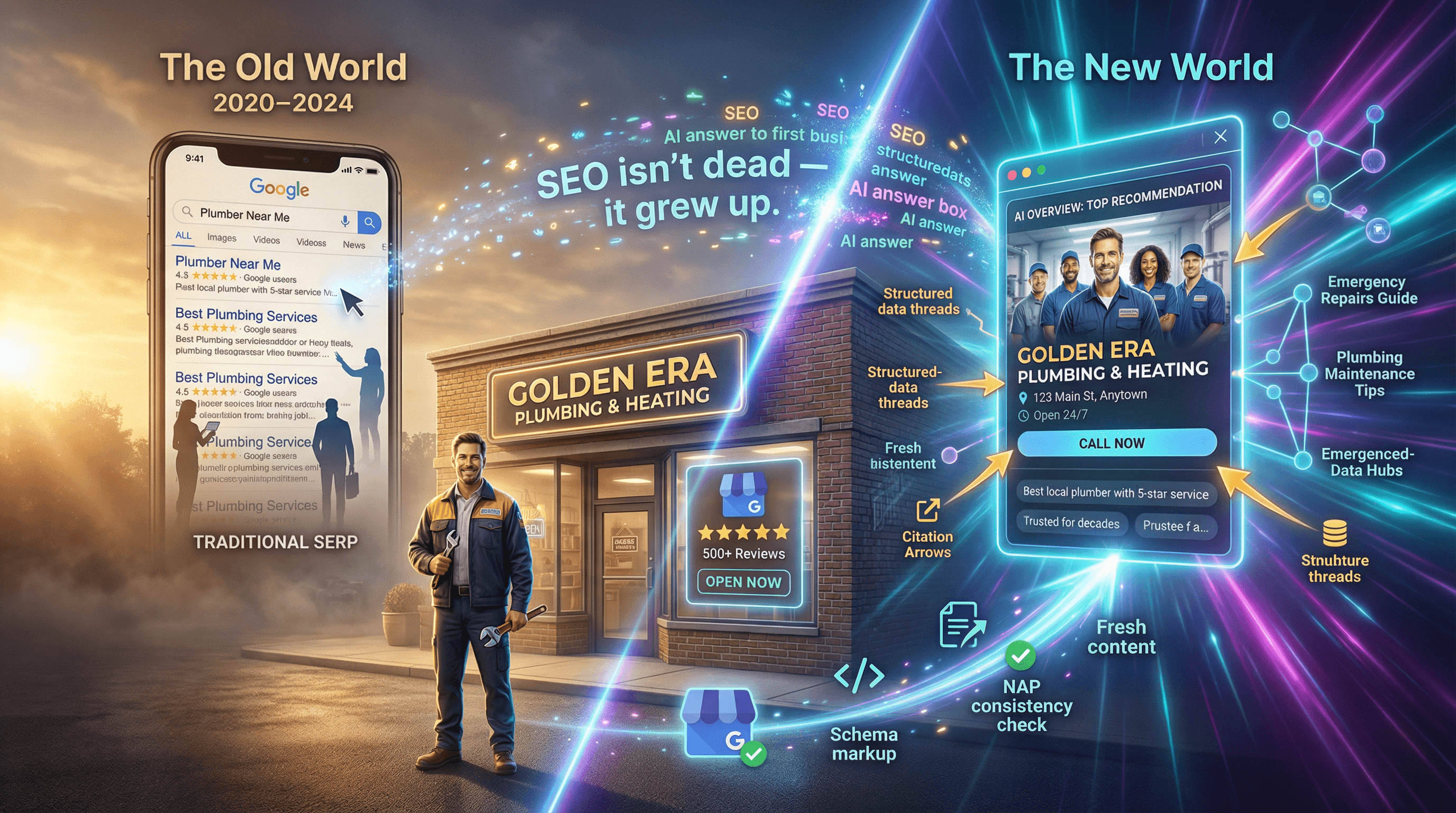Growth Partner
Find your ideal performance marketing partner with our comprehensive guide. Learn key traits, evaluate track records, and ask the right questions.
Many businesses struggle with marketing, seeing it as just a cost instead of a way to grow. If that sounds familiar, it might be time to look at performance marketing. This method focuses on actual results, like getting sales or leads, rather than just getting your brand name out there. Finding the right team to help you with this is super important. This guide will walk you through how to pick a good performance marketing partner.
Key Takeaways
A good performance marketing partner focuses on measurable results, not just getting your brand seen.
Look for agencies that create custom strategies for your business, not generic plans.
Transparency in reporting and clear tracking of where results come from are vital.
Avoid partners who focus only on 'vanity metrics' like impressions without actual conversions.
Your partner should be able to show they've successfully scaled campaigns and can adapt strategies over time.
Understanding the Value of a Performance Marketing Partner

Why Choosing the Right Performance Marketing Agency Matters
Look, picking a marketing agency can feel like a shot in the dark sometimes. So many of them sound the same, right? But here’s the thing: not all agencies are built the same. Some are just order-takers, happy to buy ad space. What you really need, especially if your business is growing or you’re in e-commerce, is a partner. Someone who actually thinks strategically, owns the results, and works with your whole business, not just one piece of it. It really does pay off to put in the time to find the right fit.
Performance Marketing vs. Traditional Marketing
Traditional marketing often aims for broad awareness – getting your name out there. Think billboards or TV ads. Performance marketing, though? That’s all about getting specific, measurable results. We’re talking about actual leads, sales, or sign-ups. It’s a different game. Instead of just hoping people see your ad, you’re paying for actions that directly impact your bottom line. It’s less about how many people see something and more about how many people do something because of it.
Here’s a quick look at the differences:
Feature | Traditional Marketing | Performance Marketing |
|---|---|---|
Primary Goal | Brand Awareness | Measurable Results |
Key Metrics | Impressions, Reach | Conversions, Leads, ROI |
Approach | Set-and-Forget | Ongoing Optimization |
Reporting | Monthly/Quarterly Summaries | Real-Time Dashboards |
When to Consider a Performance Marketing Approach
So, when should you think about switching gears? Ask yourself a few questions. Are you spending money on marketing without seeing a clear return? If you can’t tell what’s actually working and what’s just costing you money, performance marketing can bring that clarity. It’s also time to consider it if you want your marketing efforts to directly help your sales team close deals. And if your business has grown, but your marketing hasn’t kept up, it’s definitely time for a change. You need a marketing strategy that grows with you.
Performance marketing is about making your marketing dollars work harder by focusing on actions that matter. It’s a continuous cycle of testing, learning, and improving to get the best possible outcomes for your business.
Key Traits of a High-Performing Agency
When you're looking for a performance marketing partner, it's easy to get lost in all the similar-sounding promises. But not all agencies are created equal. Some are just order-takers, moving money around without a real plan. You need someone who acts like a true partner, someone who can actually drive growth. So, what separates the good from the great?
Strategic Planning Beyond Platform Playbooks
A cookie-cutter approach just won't cut it anymore. The best agencies don't just follow a set of rules for each platform. They dig into your specific business, your audience, and your goals to build something unique. This means looking at how different channels work together, not in isolation. They should be able to show you how they plan to grow your business, maybe with some forecasting or a clear roadmap. It’s about having a custom plan, not just a generic one.
Transparent Reporting and Clear Attribution
Anyone can say they'll grow your business. But what does that actually mean? You need an agency that can show you exactly how their work translates into real business results, not just a bunch of numbers that look good on paper. This means clear attribution – knowing which efforts led to which outcomes. They should be able to point to things like lower customer acquisition costs or more sales, and explain how they got there.
You want to see how the agency's actions directly impact your bottom line, not just vague promises of increased visibility.
Outcome Orientation and Measurable Results
Ultimately, performance marketing is about results. An agency that truly performs will focus on metrics that matter to your business, like conversions, revenue, and customer lifetime value. They should be able to demonstrate a history of achieving these kinds of outcomes for other clients. It’s not just about spending money; it’s about making money.
Here’s what to look for:
Clear KPIs: They define success with you upfront.
Attributable Growth: They can show how their efforts led to specific results.
ROI Focus: Their strategies are designed to maximize your return on investment.
Creative That Drives Performance
Good creative is the engine of any campaign. The agency you work with should have a solid process for testing different ad creatives to see what really connects with your target audience on each specific platform. What works on TikTok might fall flat on LinkedIn, and a top agency understands this. They’ll tailor their creative approach, not just churn out generic ads. They should be able to show you examples of how they’ve tested and refined creative to boost campaign performance, which is a key part of driving measurable results.
Proven Ability to Scale Efficiently
If you're planning to increase your ad spend significantly, you need a partner who can handle it. Look for agencies that have a track record of managing larger budgets effectively while still maintaining or improving performance metrics like return on ad spend (ROAS) or customer acquisition cost (CAC). Ask for case studies that specifically highlight their ability to scale campaigns successfully. This shows they have the infrastructure and know-how to grow with you.
Account Team Access and Senior Involvement
It’s a common frustration: you meet with senior leaders during the sales process, only to be handed off to junior staff once you sign on. The best agencies ensure that experienced team members, and often senior leadership, remain involved in your account. You should have clear access to your account team for questions and discussions, and they should be responsive. Knowing who is working on your account and that they have the right experience makes a big difference.
Evaluating an Agency's Track Record and Capabilities
Assessing Proven Success and Client Testimonials
When you're looking at agencies, you really want to see that they've done this before and done it well. It’s not enough for them to just say they’re good; you need proof. Look for case studies that detail specific campaigns they ran, the challenges they faced, and the actual results they achieved. Did they increase sales? Lower costs? By how much? Also, check out client testimonials. Are they from companies similar to yours in size or industry? Real feedback from past clients can tell you a lot about an agency's reliability and how they work.
Look for quantifiable results: Specific numbers like a 300% increase in return on ad spend or a 50% drop in customer acquisition cost are much more telling than vague statements.
Check for industry relevance: An agency that has a strong history in your specific sector likely understands your audience and market better.
Seek out client references: Don't hesitate to ask if you can speak with a current or former client to get a firsthand account of their experience.
It’s easy to get swayed by a slick presentation, but the real measure of an agency’s capability lies in the tangible outcomes they’ve delivered for others. Dig into the details of their past work to see if it aligns with what you need.
Evaluating Strategic Capabilities and Roadmaps
An agency shouldn't just be good at running ads; they need to have a solid plan for how they'll help your business grow. This means they should be able to look at your current marketing efforts, figure out what's working and what's not, and then create a clear path forward. Ask them how they develop their strategies. Do they create a custom plan for you, or do they use a standard playbook? A good agency will want to understand your specific business goals and then build a strategy that directly supports them. They should also be able to explain how they plan to test different approaches and adapt as things change.
Audit Process: How do they assess your existing marketing efforts?
Roadmap Development: Can they present a clear, step-by-step plan tied to your business objectives?
Adaptability: How do they adjust strategies based on performance data and market shifts?
Understanding Channel Expertise and Optimization
Performance marketing isn't just about one platform; it's about using a mix of channels effectively. You want an agency that knows how to make different channels work together. For example, does their search team talk to their social media team? They should have a good grasp of various platforms like Google Ads, Meta Ads, and others, and know how to optimize campaigns within each. This includes things like audience targeting, creative testing, and making sure the ads are shown to the right people. It’s also important that they can explain how they test and improve creative assets, because what works on one platform might not work on another. Their ability to tailor creative and strategy to each specific channel is a big indicator of their skill.
Cross-Channel Integration: How do different teams within the agency collaborate?
Platform Proficiency: What specific channels do they have deep experience with?
Creative Testing Methodology: How do they determine which ad creatives perform best on each platform?
Essential Questions to Ask Potential Partners

So, you've decided a performance marketing partner is the way to go. That's great! But now comes the tricky part: figuring out who to actually work with. It's not just about finding someone who talks a good game; you need a partner who can deliver real results for your business. Asking the right questions upfront can save you a lot of headaches down the road. Think of it like this: you wouldn't hire a contractor without asking about their experience, right? Same idea here.
Defining and Measuring Campaign Success
When you talk to potential agencies, get them to lay out exactly how they'll know if a campaign is working. Don't settle for vague answers about 'brand awareness' or 'reach'. You need specifics tied to your business goals. Ask them what metrics matter most for your specific objectives. Are you looking for more leads, higher conversion rates, or a better return on ad spend? A good partner will have a clear plan for tracking these and explaining how they connect to your bottom line.
Here are some things to probe:
What key performance indicators (KPIs) will you focus on for our campaigns?
How will you track and report on these KPIs?
Can you show examples of how your strategies have directly impacted revenue or lead generation for similar businesses?
Process for Underperforming Campaigns
No one plans for campaigns to fail, but sometimes they just don't hit the mark. What's important is how the agency handles it. Do they just let it slide, or do they have a solid plan for figuring out what went wrong and fixing it? You want a partner who sees underperformance as a learning opportunity, not a failure.
Ask them:
What's your typical process when a campaign isn't meeting its goals?
How quickly do you identify and react to underperformance?
Can you walk me through a time you had to pivot a campaign strategy and what the outcome was?
It's important to understand their problem-solving approach. A proactive agency will have established methods for diagnosing issues and implementing corrective actions, rather than just waiting for results to improve on their own. This shows a commitment to continuous improvement and accountability.
Frequency of Strategy Review and Adjustment
Marketing isn't static. The digital landscape changes constantly, and what works today might not work tomorrow. Your performance marketing partner needs to be on top of these shifts. Find out how often they plan to review your overall strategy and make adjustments. This isn't a 'set it and forget it' kind of business. You need a partner who is actively thinking about how to optimize your campaigns for better results over time. You can find some great questions to help with this evaluation on this resource.
Consider asking:
How often do you conduct formal strategy reviews for client accounts?
What triggers an unscheduled strategy adjustment?
How do you stay updated on market trends and algorithm changes that might affect our campaigns?
Identifying Red Flags in Agency Partnerships
When you're looking for someone to help grow your business through marketing, it's easy to get caught up in the promises. But not all agencies are created equal, and some can actually set you back. It’s important to spot the warning signs early on so you don’t end up with a partnership that doesn’t deliver.
Overemphasis on Vanity Metrics
Some agencies love to talk about metrics that look good on paper but don't really impact your bottom line. Think lots of impressions or social media likes. While these can be nice, they don't always translate into actual sales or leads. A good partner will focus on metrics that directly tie to your business goals, like conversion rates, customer acquisition cost, and return on ad spend. If an agency can't clearly explain how their activities will lead to more revenue or qualified leads, that's a big red flag.
Lack of Clear Attribution and Data Transparency
Understanding where your marketing money is actually working is key. If an agency is vague about how they track results or can't show you a clear path from ad click to sale, be wary. You need to know which channels and campaigns are driving the most value. This means they should have solid systems for attribution modeling and be open about sharing the data. Without this, you're essentially flying blind.
One-Size-Fits-All Marketing Plans
Every business is different, and so should its marketing strategy be. If an agency presents you with a generic plan that could apply to almost any company, it shows a lack of real strategic thinking. They should be asking a lot of questions about your specific business, your audience, and your unique challenges. A truly effective partner will build a custom strategy tailored to your needs, not just pull from a standard playbook. If they don't seem interested in digging into the specifics of your business, it's probably time to look elsewhere.
Building a Scalable Growth Engine
Creative Development Tailored to Platforms
Think of your marketing like a machine. To make it run smoothly and grow, you need the right parts, and that includes the ads themselves. Generic ads just don't cut it anymore. A good partner knows that what works on TikTok won't necessarily work on LinkedIn, or even Google Search. They'll create different versions of your ads – different images, different text, maybe even different video styles – specifically for each place you're advertising. This isn't just about looking different; it's about speaking the language of that specific platform and its users. It means understanding what kind of content grabs attention in a feed full of distractions and what kind of message drives action when someone is actively searching for a solution.
Proven Ability to Scale Efficiently
So, you've found an ad that's really working. Great! Now, how do you get more of that without breaking the bank or seeing diminishing returns? This is where scaling comes in, and it's not as simple as just throwing more money at it. An experienced partner knows how to gradually increase budgets, test new audiences that are similar to your best customers, and expand into related channels. They watch the data closely to make sure that as you spend more, you're still getting a good return. It’s about smart growth, not just fast growth. They’ll have a plan for how to increase your reach and sales without sacrificing the efficiency you’ve already built.
Building a growth engine means your marketing efforts should consistently feed into each other, creating a cycle of awareness, engagement, and conversion that gets stronger over time. It’s not about one-off campaigns, but about creating a system that reliably brings in new customers and revenue.
Account Team Access and Senior Involvement
When you’re working with an agency, you don’t just want to talk to junior staff who are following a script. You need access to the people who are actually making the big decisions and have the most experience. This means having regular contact with the account manager, of course, but also knowing that senior strategists or even the agency owners are involved. They should understand your business goals deeply and be able to offer insights that go beyond just managing ad spend. Having senior people involved means they can help steer the overall strategy, identify new opportunities, and troubleshoot problems effectively. It shows they’re invested in your success, not just managing a contract.
Finding Your Right Fit
So, you've gone through the steps and learned what to look for in a performance marketing partner. It's a big decision, and honestly, it can feel a bit overwhelming with so many options out there. But remember, the goal isn't just to find an agency that runs ads. It's about finding a real partner who understands your business, talks your language about results, and is just as invested in your growth as you are. Take your time, ask the tough questions, and trust your gut. The right partner will make all the difference in turning your marketing efforts into actual business wins.
Frequently Asked Questions
What exactly is performance marketing?
Performance marketing is a way of advertising where you only pay when something specific happens, like someone clicking your ad, signing up for something, or buying a product. It's all about getting real results, not just showing ads to lots of people.
How is performance marketing different from regular marketing?
Regular marketing often focuses on getting your brand noticed by as many people as possible. Performance marketing, on the other hand, is all about getting measurable actions that lead to sales or leads. You pay for results, not just for ads to be seen.
When should a business think about using performance marketing?
You should consider performance marketing if you're not sure if your current marketing is working, if you want to see a clear link between your ad spending and sales, or if your business has grown and needs a more focused way to get results.
What should I look for in a good performance marketing agency?
A great agency will create a special plan just for your business, not use a copy-paste method. They'll be open about how your campaigns are doing with clear reports and explain how they get results. They should also focus on what really matters, like sales, not just how many people saw your ad.
What are some warning signs when choosing a marketing partner?
Be careful if an agency talks too much about 'vanity metrics' like just getting lots of views but no real action. Also, watch out if they can't clearly show where your leads and sales are coming from or if they offer the same marketing plan to everyone.
How can I tell if an agency is good at growing my business?
Look for proof! Ask for examples of how they've helped similar businesses succeed. Make sure they understand different marketing channels like social media ads and search engines. Also, check if they have a plan to make your campaigns bigger and better over time.
























































































